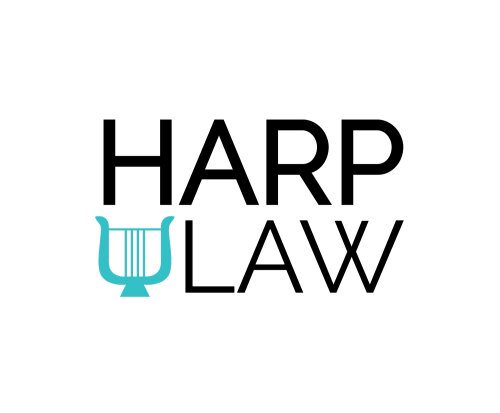Best Inheritance Law Lawyers in United States
Share your needs with us, get contacted by law firms.
Free. Takes 2 min.
Or refine your search by selecting a city:
List of the best lawyers in United States
1. About Inheritance Law in the United States
Inheritance law in the United States governs how a decedent's assets pass to heirs and beneficiaries. It includes wills, trusts, intestate succession, probate administration, and related procedures. State laws largely shape these processes, so outcomes vary by jurisdiction even for similar assets. Executors, trustees, and attorneys must follow state statutes and court rules to transfer or manage property properly.
Key concepts include probate, which is the court process confirming a will and appointing an executor or administrator; intestate succession, which describes how assets pass when there is no valid will; and the use of trusts to manage and distribute assets outside probate. Federal rules, such as the estate tax, may apply when the estate exceeds certain thresholds, but most estates are settled under state law. A clear estate plan reduces disputes and speeds up administration.
For travelers and residents, understanding how real estate, business interests, and digital assets are treated is essential. State decisions about community property, elective share rights for spouses, and creditor protections can all influence the final distribution. This guide provides a practical overview and points you toward reliable, official sources for your state-specific questions.
2. Why You May Need a Lawyer
These real-world scenarios show why hiring an inheritance law attorney is often necessary. Each example reflects common, concrete situations you may face in the United States.
- You were left out of a relative’s will or suspect undue influence. A attorney can review the will, identify potential violations, and assess grounds for a challenge in probate court if required.
- You are the named executor and need to probate an estate with assets in multiple states. An attorney can coordinate across jurisdictions, handle out-of-state filings, and resolve multi-state tax issues.
- The decedent died without a will. You need guidance on intestate succession rules, surviving spouse rights, and how to locate missing heirs or debts that may affect distributions.
- You must interpret a trust or address a potential trustee breach. A lawyer can examine trust terms, enforce fiduciary duties, and pursue remedies like removal or accounting if needed.
- Digital assets and start-up or family business interests require careful planning. An attorney can secure online accounts, cryptocurrency holdings, and business interests in accordance with state law.
- You anticipate or face estate tax consequences. An attorney with tax planning experience can explore strategies to minimize taxes and maximize transfers to heirs.
- You want to update an old estate plan to reflect life changes such as marriage, divorce, or blended families. A lawyer can revise wills, trusts, and beneficiary designations securely.
3. Local Laws Overview
Inheritance law is largely state-based, with model codes and widely adopted concepts guiding many jurisdictions. The following are well-known frameworks and statutes that influence how estates are handled in the United States.
- Uniform Probate Code (UPC) - A model code used by several states to standardize probate and estate administration. Many jurisdictions have adopted all or parts of the UPC, particularly regarding intestate succession, the roles of executors and administrators, and priority of creditors. Official information about the UPC can be found through the Uniform Law Commission’s resources.
- California Probate Code - Governs wills, intestate succession, probate proceedings, and related matters in California. The state’s official legislative site provides current text and amendments to Prob sections and other related provisions. For state-specific guidance, consult the California Legislative Information site.
- Texas Estates Code - Dictates probate and estate administration for Texas residents, including intestate rules, wills, and guardianships. The Texas Legislature Online offers official text and updates to the Estates Code and related chapters.
States vary in how they implement these concepts; for example, some states adopt partial provisions of the UPC while others maintain distinct statutes. Always verify the exact code and recent amendments in your jurisdiction.
Practical takeaway: always consult your state’s current probate code and any local court rules because procedures, filing deadlines, and fee structures differ markedly across states. For digital assets and modern planning, many states have begun updating definitions and execution provisions in the 2020s, but progress is uneven. See the official sources linked below for jurisdiction-specific details.
4. Frequently Asked Questions
What is probate and why do I need to file it after a loved one dies?
Probate is the court process to validate a will and authorize asset transfer. Filing ensures debts are addressed and assets pass to heirs lawfully under state law. Without probate, transfer of ownership for most assets may not be legally valid.
How do I start probate in my state and what forms are required?
Start by locating your state probate court, obtaining the correct petition forms, and gathering the decedent's death certificate, will, and asset list. Filing requirements vary by state, so consult your court’s website or a local attorney for precise forms.
What is an executor and what powers do they hold in practice?
The executor is named in the will or appointed by the court. Their duties include gathering assets, paying debts, filing tax returns, and distributing property. They must act in the estate's best interests and follow court oversight.
What does intestate mean and how are assets distributed without a will?
Intestate describes a person who dies without a valid will. Courts apply state intestate succession laws to determine heirs and shares. Spouses and children often receive primary portions, with other relatives following.
Do I really need a will to transfer assets to my heirs?
A will provides clear instructions for asset distribution and can reduce disputes. Without a will, state laws determine who inherits, which may not align with your preferences.
How much does probate cost on average in my state?
Costs include court filing fees, executor commissions, and attorney fees. Costs vary widely by state and estate size. In many cases, fees are set by statute or court-approved rates.
How long does probate typically take from filing to closing?
Timelines depend on state law, probate complexity, and asset location. Simple probates may finish in 6 to 12 months; more complex estates can take years, especially with disputed issues.
Do I need an attorney or can I handle probate myself?
Many estates can proceed without an attorney, but complex scenarios benefit from legal guidance. An attorney can reduce mistakes, ensure tax compliance, and navigate court procedures.
What is the difference between a will and a living trust?
A will directs asset transfer after death and typically goes through probate. A living trust passes assets during life and can avoid probate for funded assets, depending on how it is structured.
What is an elective share and who qualifies for it?
Some states grant a surviving spouse an elective share of the estate, regardless of the will. Elective share rights are defined by state statute and can affect distributions to other heirs.
How are digital assets like online accounts handled in estates?
Digital assets require careful planning. State laws and service providers govern access and transfer, and including digital asset provisions in a will or trust helps authorities move assets to beneficiaries.
Can a will be challenged and how is a contest started?
Wills can be challenged on grounds like lack of capacity, undue influence, or improper execution. An attorney can guide filing a will contest within stated deadlines and through the court process.
5. Additional Resources
- US Courts - Probate Basics - Official guidance on the probate process, terminology, and court procedures. https://www.uscourts.gov/services-forms/procedure-probate/probate-basics
- Internal Revenue Service - Estate Tax - Information on federal estate tax, exemptions, and filings. https://www.irs.gov/businesses/small-business-farmers-and-self-employed/estate-tax
- Uniform Law Commission - Uniform Probate Code - Model legislation used by states to regulate probate and estate administration. https://www.uniformlaws.org/Uniform-Probate-Code
6. Next Steps
- Identify your goals and gather key documents such as the will, trust documents, death certificate, and asset lists. Do this within 1 week of learning about inheritance issues.
- Determine the correct jurisdiction by identifying where the decedent lived and where assets are located. This step should be completed within 1-2 weeks.
- Research local inheritance law attorneys or legal counsel with probate experience in your state. Create a shortlist within 2-3 weeks.
- Schedule initial consultations to discuss your case, fees, and expected timelines. Allow 2-4 weeks to complete consultations and compare options.
- Ask about fee structure, retainer needs, and anticipated total cost for common probate tasks. Expect to decide within 1-2 weeks after consultations.
- Check references and confirm there are no conflicts of interest. Verify disciplinary history with the state bar if applicable. Do this during consultations and before engagement.
- Sign a retainer agreement with your chosen attorney and set a preliminary timeline for filing, notices, and potential court hearings. Start within 1-2 weeks after engagement.
Lawzana helps you find the best lawyers and law firms in United States through a curated and pre-screened list of qualified legal professionals. Our platform offers rankings and detailed profiles of attorneys and law firms, allowing you to compare based on practice areas, including Inheritance Law, experience, and client feedback.
Each profile includes a description of the firm's areas of practice, client reviews, team members and partners, year of establishment, spoken languages, office locations, contact information, social media presence, and any published articles or resources. Most firms on our platform speak English and are experienced in both local and international legal matters.
Get a quote from top-rated law firms in United States — quickly, securely, and without unnecessary hassle.
Disclaimer:
The information provided on this page is for general informational purposes only and does not constitute legal advice. While we strive to ensure the accuracy and relevance of the content, legal information may change over time, and interpretations of the law can vary. You should always consult with a qualified legal professional for advice specific to your situation.
We disclaim all liability for actions taken or not taken based on the content of this page. If you believe any information is incorrect or outdated, please contact us, and we will review and update it where appropriate.
Browse inheritance law law firms by state in United States
Refine your search by selecting a state.
















